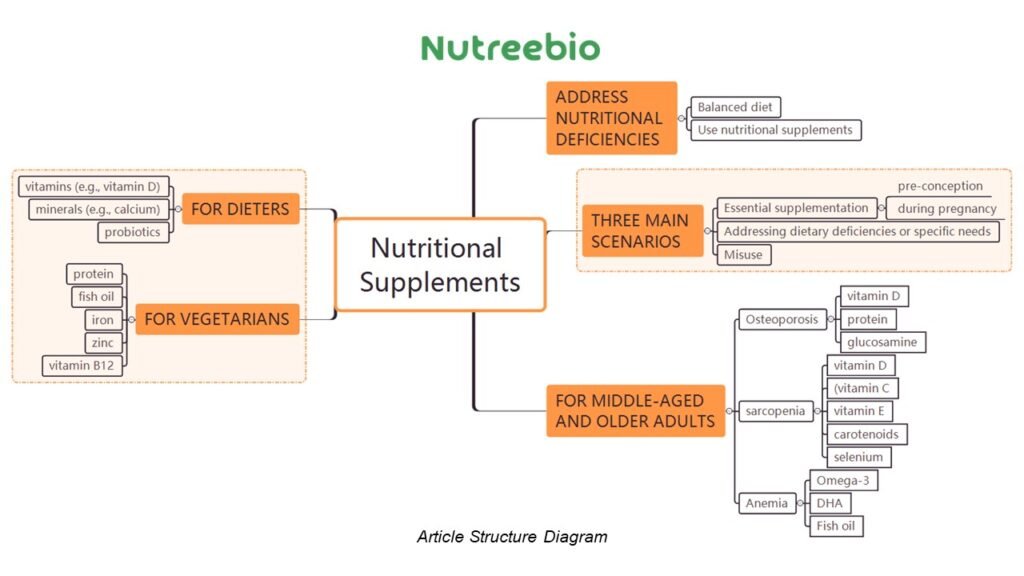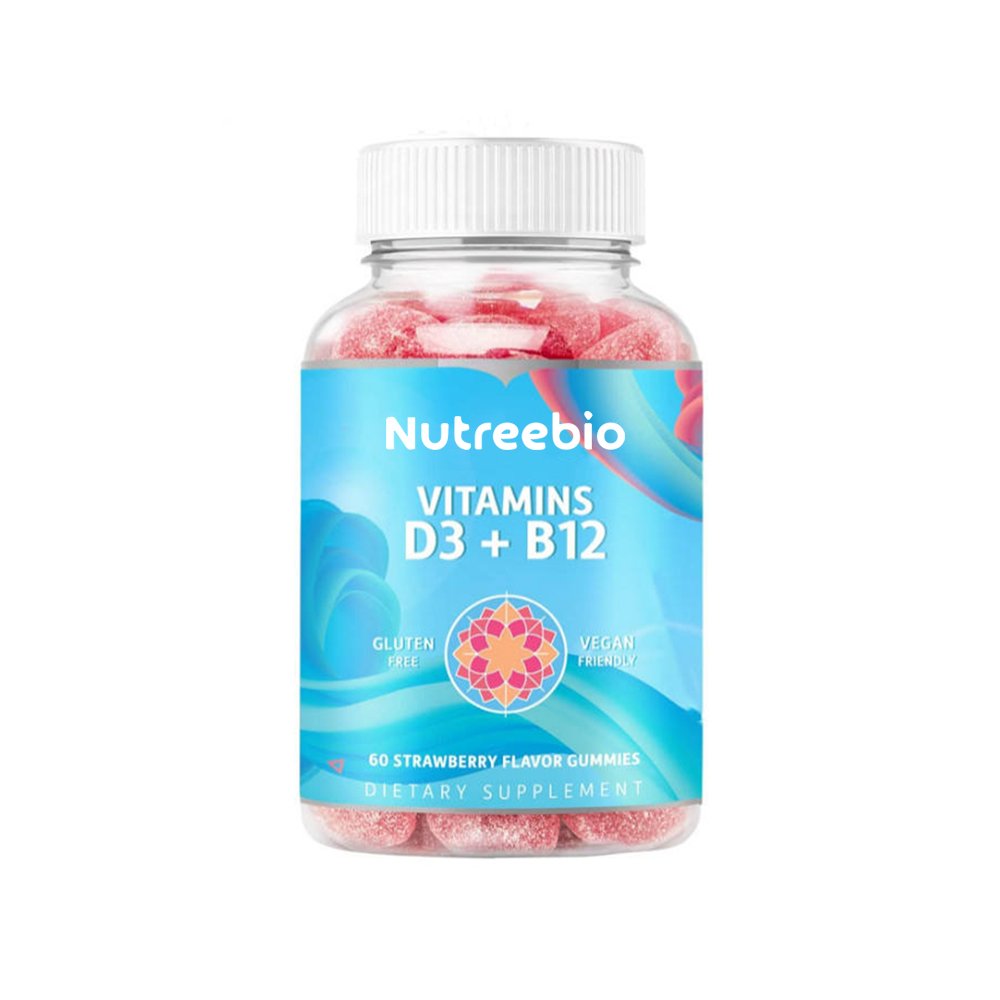The consumption of nutritional supplements (health foods) has been on the rise, with an increasing number of people incorporating them into their daily routines. According to a global survey conducted by Euromonitor International in 2019, the usage of nutritional supplements has been steadily increasing worldwide. The survey covered multiple countries and regions, and it revealed that approximately 40% of the global adult population had purchased nutritional supplements, and approximately 65% had used them at some point in their lives. However, alongside the popularity, there have been criticisms, questioning the effectiveness and potential health risks of taking nutritional supplements. So, should nutritional supplements be taken, and if so, how should they be used?


1. Nutritional Supplement Guidelines - Use but Don't Abuse
In general, there are two main ways to address nutritional deficiencies. The first approach involves maintaining a balanced diet, following the guidelines set by the "2022 Dietary Guidelines for Chinese Residents," which applies to everyone. The second approach includes using nutritional supplements and fortified foods, which are suitable for individuals with imbalanced diets or specific nutrient needs, such as pregnant women, lactating mothers, infants, young children, older adults, individuals engaged in intense physical activities or exposed to extreme environments. Nutritional supplements also offer a convenient and effective solution for individuals with nutrient deficiencies (while improving their diet). In summary, nutritional supplements are not a "cure-all" or a threat but rather one of the effective methods to address nutritional issues, provided they are used appropriately and based on sound reasoning. They are necessary and beneficial for individuals with specific dietary challenges or higher nutrient requirements.
Currently, there are three main scenarios for Nutritional Supplement Guidelines:
- Essential supplementation: This includes situations where specific nutrients must be supplemented, such as folic acid for pre-conception and during pregnancy, vitamin D for infants, and iodine (in iodized salt) for the general population.
- Addressing dietary deficiencies or specific needs: This category covers cases like supplementing DHA for individuals with low fish and shrimp intake, vitamin D for those with limited sun exposure, vitamin B12 for older adults, dietary fiber for individuals experiencing constipation, and protein powder for those requiring a high-protein diet.
- Misuse: This refers to the use of supplements without specific targeting, following trends without rationale, or blindly increasing the variety or dosage. Unfortunately, such practices are common.
Before deciding to use nutritional supplements, individuals should adhere to relevant medical guidelines or expert consensus, avoiding blind abuse. Additionally, it's crucial to be specific and targeted when using supplements, addressing the deficiencies adequately and consulting nutrition professionals, such as dietitians, health managers, or physicians.
2. Nutritional Supplements for Middle-Aged and Older Adults
Middle-aged and older adults often face metabolic issues such as high blood sugar, high blood lipids, high blood pressure, hyperuricemia, hyperhomocysteinemia, and osteoporosis. Both their regular diet and nutritional supplements should consider these specific challenges.
Osteoporosis has become a critical public health issue with the increasing aging population. Osteoporosis is a prevalent health concern worldwide, particularly among the elderly population. According to the International Osteoporosis Foundation (IOF), the estimated global prevalence of osteoporosis in individuals aged 50 and above is around 27.6% in women and 6.4% in men. The rates increase significantly in individuals above 60, with approximately 35% of women and 13.5% of men being affected by osteoporosis globally. To prevent osteoporosis, middle-aged and older adults should ensure adequate calcium intake, with recommended daily calcium intake at 800 mg for adults and 1000 mg for those aged 50 and above. Calcium should ideally be obtained from diet through consuming 300 mL of milk or equivalent dairy products daily, regularly consuming soy products, and incorporating calcium-rich green leafy vegetables into the diet. When dietary calcium intake is insufficient, calcium supplements can be considered. When selecting calcium supplements, factors to consider include the calcium content, safety, and effectiveness. Calcium carbonate has high calcium content and absorption rate, dissolves easily in gastric acid, but may cause mild discomfort and constipation.


Vitamin D is essential for bone health as it promotes calcium absorption in the intestine, bone mineralization, muscle strength, balance, and reduces the risk of falls. Vitamin D is primarily synthesized by the skin under sunlight (UV exposure). Individuals with limited sun exposure should pay attention to supplementing vitamin D, with daily intake recommended at 400-600 international units (IU) for adults and 600-800 IU for those aged 65 and above. Vitamin D deficiency has become a global public health issue due to socioeconomic development, lifestyle changes, and reduced outdoor activities and outdoor work. Epidemiological data indicate that vitamin D deficiency is widespread in the Chinese population.
Supplementing vitamin D in older adults also aids in preventing and treating sarcopenia. It is recommended to test the serum 25-hydroxyvitamin D3 level of older adults, and if it falls below 30 nanograms per milliliter (75 nanomoles per liter), vitamin D should be supplemented at 600-800 IU daily. Sufficient protein intake is also crucial for preventing sarcopenia, with daily protein intake for older adults should be maintained at 1.0-1.5 grams per kilogram of body weight, distributed evenly throughout three meals. In addition to protein-rich foods such as milk, eggs, meat, fish and shrimp, supplementing whey protein is also beneficial for preventing sarcopenia. Moreover, older adults with sarcopenia should consider taking nutritional supplements containing various antioxidants (vitamin C, vitamin E, carotenoids, and selenium).
Another essential nutrient related to joint health in older adults is glucosamine, a major component of cartilage tissue. According to the recommendations of the Chinese Nutrition Society, adults with joint movement injuries or osteoarthritis should supplement 1000 mg of glucosamine daily, or 1500 mg of glucosamine sulfate/hydrochloride.
Anemia is also prevalent in older adults. Investigations show that the prevalence of anemia in individuals aged 60 and above is 12.6%. This is related to the weakened digestive function in older adults, resulting in reduced absorption of nutrients such as iron and vitamin B12. Older adults should monitor their complete blood count, including hemoglobin levels. If the hemoglobin level falls below the normal range and is diagnosed as iron-deficiency anemia, iron supplements can be taken (according to medical advice). Supplementing vitamin C can enhance iron absorption and aid in preventing and treating iron-deficiency anemia.
Fish oil contains DHA, an omega-3 polyunsaturated fatty acid that is beneficial for the nervous system and lipid metabolism in middle-aged and older adults. High-purity fish oil can lower triglyceride levels in the blood by 30%-40% with minimal side effects and excellent tolerance. Low-dose omega-3 polyunsaturated fatty acids have weaker lipid-lowering effects and serve more as auxiliary treatment. Additionally, supplementing fish oil or consuming DHA-rich fish can also be beneficial for older adults experiencing muscle loss and reduced muscle function.
Furthermore, whey protein (powder) is now widely used in various clinical settings, including pre- and post-surgery, critical illness, tumor radiotherapy and chemotherapy, burn patients, infectious disease patients, patients with wasting diseases, and older patients with muscle loss. These patients are recommended to increase protein intake or adopt a high-protein diet (except for patients with impaired kidney function or hepatic coma, who should follow medical advice).
3. Nutritional Supplements for Vegetarians
Vegetarians exclude animal-based foods from their diets, which may lead to potential deficiencies in protein, vitamin B12, iron, zinc, and omega-3 polyunsaturated fatty acids if not carefully balanced. Vegetarians can follow the recommended guidelines for healthy vegetarian diets to ensure balanced nutrition. If dietary intake alone cannot meet the requirements of a healthy vegetarian diet, it is essential to consider supplementing protein, fish oil (omega-3 polyunsaturated fatty acids, DHA), iron, zinc, and vitamin B12 through compound vitamins and minerals.
4. Nutritional Supplements for Dieters
Various weight loss methods require the reduction of energy intake, such as consuming only 1200 kcal per day for women or 1400 kcal per day for men, with an average daily energy reduction of 500 kcal. It is challenging to provide comprehensive and adequate nutrients through a restricted diet or limited food variety. In such cases, individuals should consider supplementing compound vitamins and minerals. Proper supplementation of vitamins and minerals during dieting not only avoids nutrient deficiencies but also prevents the negative effects of insufficient vitamins (e.g., vitamin D), minerals (e.g., calcium), and probiotics on weight loss outcomes.
Most weight loss methods ensure sufficient protein intake, either directly or indirectly, with high-protein (low-carb) diets also advocating additional protein intake. Supplementing additional protein is a common practice during dieting.
5. Key Considerations when Choosing Nutritional Supplements
When deciding to use nutritional supplements, it is essential to select targeted types and appropriate doses, as previously mentioned. Nutritional supplements are not about more is better or the more comprehensive, and one should not make random choices or take arbitrary amounts. If individuals are unsure about which types or doses to choose, it is advisable to consult nutritionists, health managers, or physicians and follow their guidance.
In addition, choosing reputable brands is vital. Good products should have a well-designed formula that meets the needs of the target population, with genuine and reliable nutrient types and quantities without exaggerated claims. All nutritional supplement products should be treated with caution. Consumers or users should understand their ingredients and attributes, avoiding blind intake and not being misled by product advertisements. Nutritional supplements are foods, not drugs, and any product claiming to cure diseases (except drugs) may be suspected of violating regulations or making false claims.
6. Conclusion
In conclusion, individuals should prioritize obtaining various nutrients adequately from their diets, as a well-balanced diet can meet the body's nutritional needs. When dietary intake falls short of nutritional requirements, people can select appropriate nutritional supplements based on their physiological characteristics and actual needs. Targeted and rational supplementation is key. Consulting nutrition professionals or healthcare providers for guidance is recommended. Nutritional supplements are valuable tools when used correctly, helping individuals maintain their overall health and well-being.
Source: Euromonitor International - "Nutrition Supplements Report 2019"
International Osteoporosis Foundation (IOF) - "Osteoporosis Facts and Statistics"



